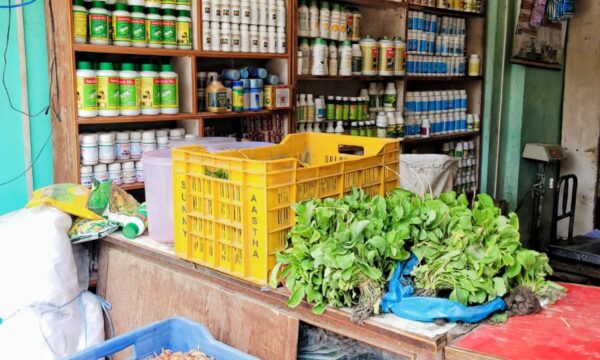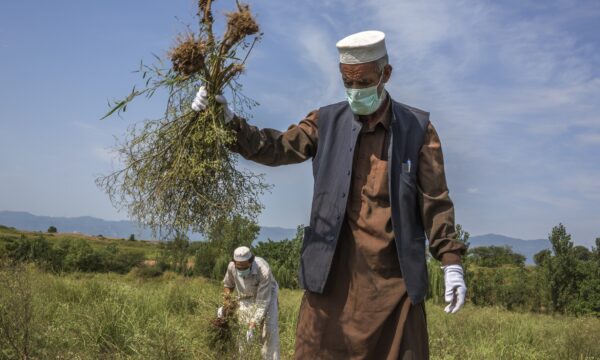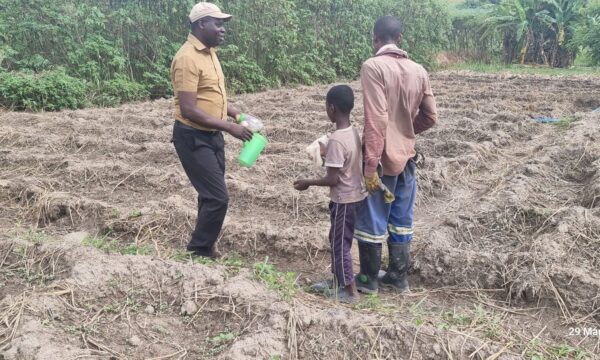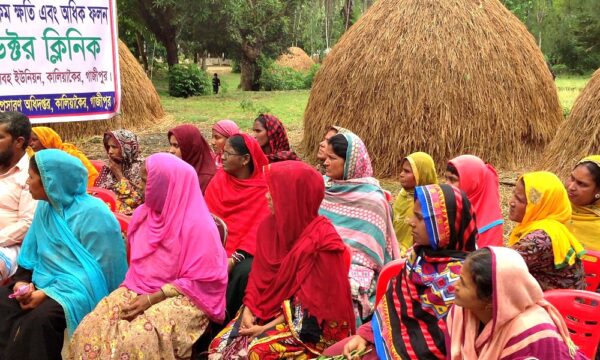In the face of increasing pesticide reliance, biological control offers a less harmful, more sustainable alternative to chemical pesticides. Biological control utilizes natural enemies, such as predators, parasitoids, and pathogens, to suppress pest populations. In Pakistan, PlantwisePlus is collaborating with the Pakistani government to rear Trichogramma chilonis, providing farmers with these tiny wasps that control pests.
Watch the video
Tiny pest-fighting wasps
In Pakistan, many farmers struggle with recurring pest infestations and the high costs associated with controlling them. Abdul Rehman, a farmer from Muzaffargarh, explains, “We used to be worried about how to control them, arranging for pesticide sprays and so on. It was quite expensive.”
The turning point came when agricultural officers introduced farmers to simple but effective “cards”. These cards contain Trichogramma chilonis, tiny parasitic wasps that attack the eggs of harmful insects.
“There was an agriculture officer who came over one day and told us about this card,” says Abdul. “He advised us to use it on our crops, as it will produce friendly insects that kill the harmful pests.”
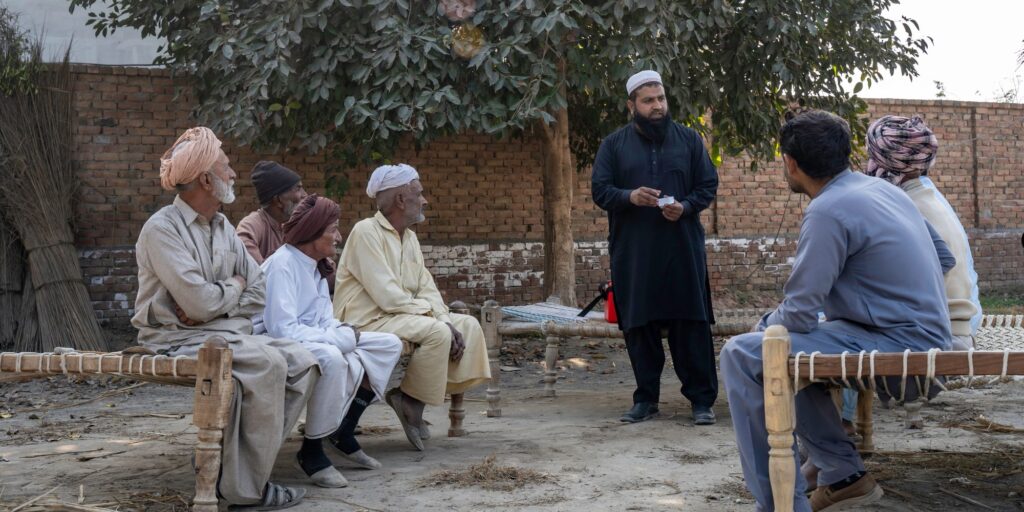
Supporting farming communities
Farmers quickly learned how to use the cards in their fields. Akbar Ali Khan, a farmer from Mardan in Khyber Pakhtunkhwa, explains, “Extension workers used to come visit our fields and give us cards. There were eggs on those cards, which we placed on the eastern side of our field. They stapled these cards under the leaves, and that gave us very good results.”
Agriculture officers also provided step-by-step guidance to ensure correct placement. Muhammad Farooq, an officer from Muzaffargarh, describes the process, “The side of the card which has eggs on it, we keep that side towards the leaf and staple it underneath. Within three or four days, the insects start hatching and spreading in the field.”
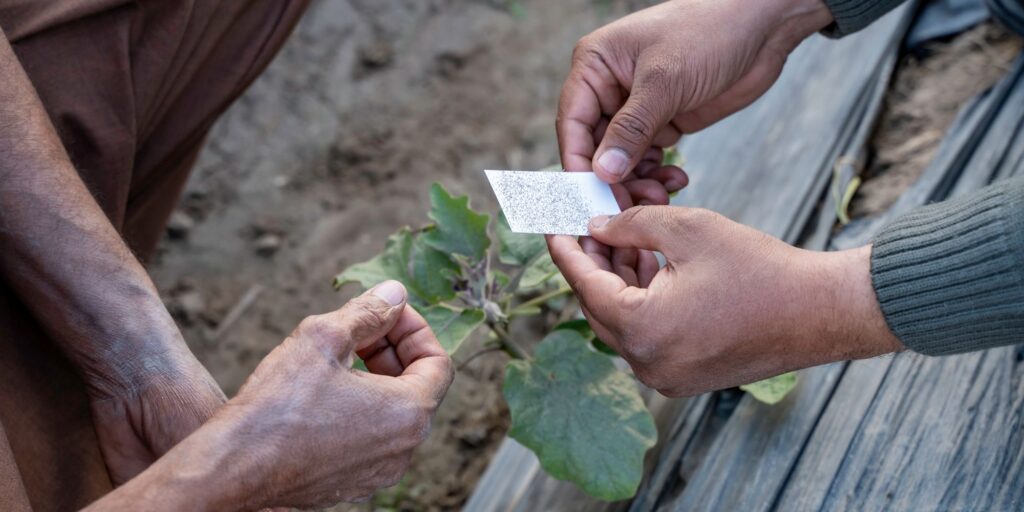
This pest management method is known as augmentative biological control. It involves the mass-rearing of beneficial insects and regularly releasing them into fields to suppress pest populations.
Trichogramma Rearing Facilities
To bring this approach to scale, PlantwisePlus partnered with federal and provincial governments to establish Trichogramma Rearing Facilities (TRFs). The first facility was launched in Mardan in 2022, followed by two more in Muzaffargarh and Muzaffarabad.
Habib ur Rehman, Deputy Director of Agriculture in Muzaffargarh, proudly highlights the results, “The TRF developed is impressive and has become a centre of excellence in all of South Punjab, where we are producing large quantities of Trichogramma cards.”
Inside these facilities, the work is both scientific and precise. In Muzaffargarh, TRF Manager, Shabnam Fareed explains, “We are working on the Trichogramma host, which is Corcyra—the rice moth. We collect its eggs and use them for Trichogramma parasitisation. Trichogramma’s lifecycle is about one week.”
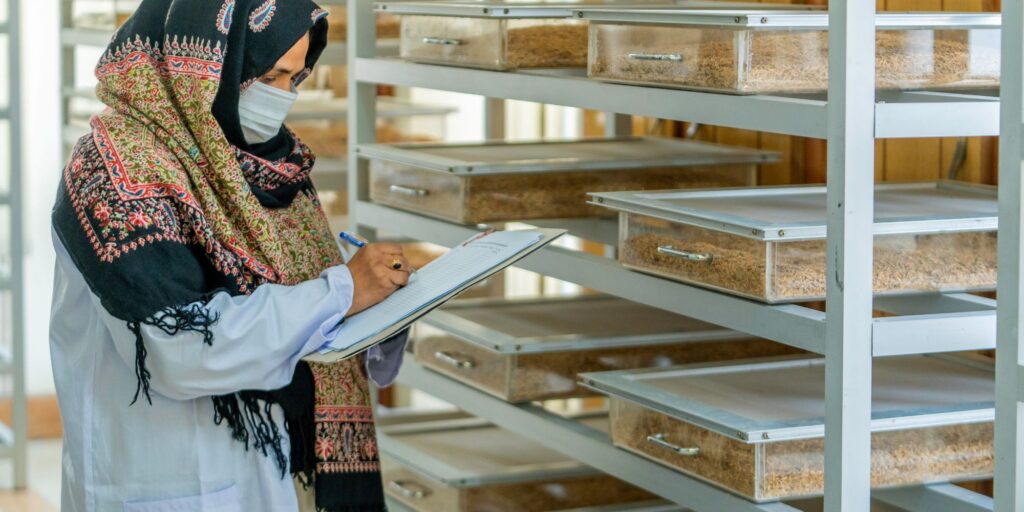
Extension workers distribute the cards produced in these facilities to farmers. The farmers then release them every few days during the fruiting season to maintain steady pest control.
Training, ownership, and sustainable futures
The impact of the TRFs extends beyond technical production. Farmers receive training on how to handle and use the cards correctly, while plant doctors and extension agents provide field visits to ensure success. Each year, advisors distribute around 50,000 cards. Thanks to these cards, thousands of households are now able to reduce their reliance on pesticides.
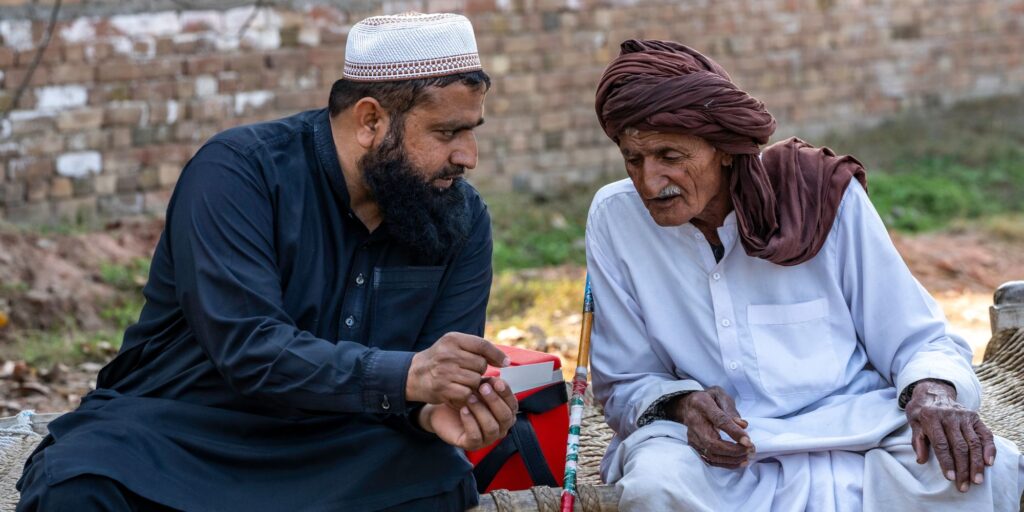
The initiative is also deeply collaborative. Dr. Babar E. Bajwa, Senior Regional Director at CABI Asia, stresses the importance of partnership, “We have supported the government to set up rearing facilities. These facilities have been established with the full ownership of the federal and provincial governments. With this, now we will have more opportunities to establish safer plant protection products like the rearing facilities for natural enemies and biopesticides.”
Sustainable and safer food production systems
In Mardan, Muzaffargarh, and Muzaffarabad, farmers who once relied heavily on expensive and hazardous pesticides now have an effective alternative. With TRFs producing cards, extension agents providing training, and the government and PlantwisePlus working hand in hand, Pakistan’s agricultural sector is well on its way toward a healthier, more resilient future. Dr. Babar E. Bajwa explains, “Our partnership and efforts will support Pakistan in achieving sustainable and safer food production systems for present and future generations.”
Further reading
PlantwisePlus
PlantwisePlus gratefully acknowledges the financial support of the Directorate-General for International Cooperation, Netherlands (DGIS); European Commission Directorate General for International Partnerships (INTPA); UK International Development from the UK government; and the Swiss Agency for Development and Cooperation (SDC).
Related News & Blogs
PlantwisePlus develops agro-input dealer training scheme with Bangladesh government
Pest outbreaks in Bangladesh are causing a rapid increase in the sale of pesticides. Farmers are turning to chemical products such as fungicides, herbicides and insecticides to manage pests, which they often buy from their local agro-input dealer. Howe…
22 January 2026

